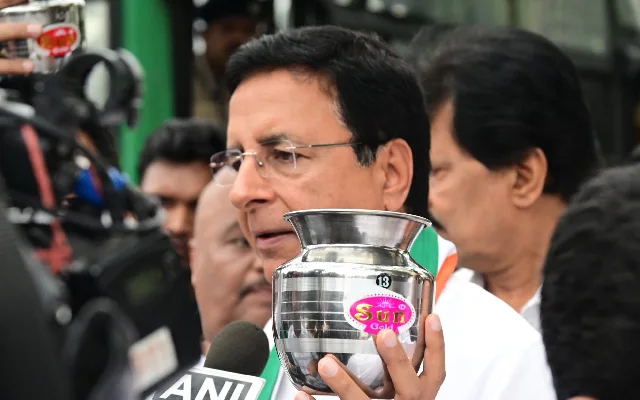Dr Edmond Fernandes an MD Candidate, Dept of Community Medicine, Yenepoya University and CEO, Center for Health and Development(R), Mangalore and Dr Anurupa Roy is Medical Doctor, Ted X speaker and Columnist, New Delhi interpret the phenomenon of today’s healthcare.
Today healthcare remains at the crossroads where the field has moved significantly corporate. The values that ethics upholds are largely promising on paper and in textbooks but its implementation remains of considerable doubt. This calls for a new school of thought with healthcare managers. Every peak scaled up towards progress by healthcare managers alters reality either slightly or dramatically. But learning the art to interpret guidelines separates and distinguishes big time the healthcare manager who is an enlightened one. However in South East Asian countries, particularly India the art of interpreting guidelines is never a classroom discussion, let alone any training on that.
 Moving forward
Moving forward
Since Independence, India has come a long way to address its healthcare needs and the constantly proliferating and changing discourse of healthcare is a signal in that direction. We can do a lot to make hospitals and health safer. Although as a nation we manufacture a factory of doctors and allied health professionals, often enough most of them are doing good work, many of them mix service with professionalism and reach out to society by different buzzwords coined by medical diplomacy and advocacy groups. While this is being taken care of, we need on the table enlightened healthcare managers. Especially, those who find time to listen to their subordinates and those who use discretion to overcome bureaucratic hurdles. Bureaucracy has hijacked the rapid progress of the country and future healthcare leaders need to be taught how to handle different situation which the 21st century demands. Overworked doctors, inflated egos and patients being merely reduced to case numbers or a disease makes healthcare complex in terms of ethical concerns. Increasing hospitals, competing market through medical tourism, lucrative insurance offers and growing need for professional skills contributes in the making of a great problem great.
Cultivating people
Healthcare managers need to create a culture that is flexible like a flowing river, a culture that not only addresses problems and tells us about the lessons learnt, but rather more importantly preventing the problem before it damages the patient. Primordial prevention which community medicine physicians proclaim becomes man-friday in almost all walks of life. This also politely leads the healthcare manager to seek health and development, to be forward looking and co-operating without offering constant resistance and having the art to differentiate between story tellers and doers in the organization.
Doers and story tellers need to be approached differently and in today’s age a healthcare manager cannot afford to put all on a common platform. One size fits all is a thought of an age gone by. Healthcare manager needs to cultivate good people. Having your sources to inform is fine, but blindly believing in what is informed without independently doing your homework is dangerous.
There will be many good workers who perform in black and white, and there will be many who mislead the system.
Between the lines
If the art to read between the lines is lacking, the organization will suffer from enlightened torch bearers. To interpret in a world that is constantly trying to show you something else is a great accomplishment. It does not happen easily. It certainly does not happen if as a healthcare manager you don’t engage with all those around you. Connectivity is the mantra for any lofty ideals. It is extremely important that a healthcare manager can articulate well and lead by strengthening partnerships and building alliances which can collectively identify common challenges and address common threats. Results don’t materialize immediately. If you thought that in few months your healthcare manager should deliver, relax. Give him his space to create the idea. Ensure he does not block your organization’s broad objective. There will be lot of honest workers to whom you are a beacon of hope, reach out to them. Guide them, lead them to fulfil their aspirations. When it is their time to give back, they will give back in measures you will never have dreamt of.
Someday when you plan to retire and look back, you can then proudly tell generations after you, this was the time when we interpreted guidelines, this was the time we used discretion and passed orders to give opportunity to individuals who were honest, creative and straightforward. This was the time we reformed our neighbourhood which today has been renewed.
Often or so patients come seeking care, seeking love and seeking relief. Ask yourself, if you are creating value proposition for them in return. Ask yourself if those working for you and with you are happy? can you do something for them and a little more ? These will forever remain the bonds of the heart. Doing this job effectively will require a new vision and a renewed approach that draws from past lessons, but not bound by outdated thinking.
When one of your colleagues is not happy with you, it is your problem. When your subordinate has expressed his displeasure, it is your problem. The requirements today can no longer be addressed by being contained in borders or safe havens. It may appear tempting to distance such people, but imagine what happens to the brand you have tried to build over the years? Create raving fans, satisfied patients and work colleagues are not good enough, this would be the virtue most valued.
The 21st Century charity
Charity as a concept and as a commitment has evolved, today it remains by far a matter of interpretation. Creativity of charity is boundless, and as a manager you ought to find new ways to bring newness.
Social responsibility and accountability has been popping up on different platforms. But what remains of significant doubt is whether it reaches whom it is meant for. It can come in any form. But come it must. Nelson Henderson reminds us, “The true meaning of life is to plant trees under whose shade we do not expect to sit.”
Let us create a culture where charity rises beyond the traditional modes of given alms. While giving alms is by far very important, empowering individuals is the biggest charity I feel.
Appreciating Efforts
Lastly in submission, it behoves on the manager to appreciate efforts. When a person has worked hard, it not only brings him satisfaction, it brings your organization recognition. It creates a brand value. Little it may be, but every opinion counts and matters, if you aspire that your organization should attain new peaks and seek new frontiers. And if as a manager you find it difficult to appreciate efforts, make sure you do not interfere at least. By doing this you will not only enjoy the love of your boss but will also receive the loyalty of your subordinates. Let your journey of healthcare management prod you to personal growth and also take the organization you are in, to new heights and heightened climax.
Tomorrow when you are not around, you can still depart as friends so that when you seek opportunity to collaborate, to advance bigger and better programmes, the doors remain open all ways.
Life doesn’t count much unless you are willing to leave the world a little better than what you found it.


















